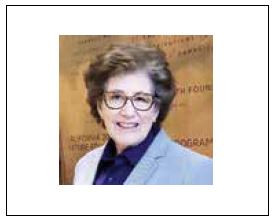
By Dr. Marcy Adelman–
Dr. Ning Hsieh, a Michigan State University sociologist, is the lead author of a groundbreaking first study to assess cognitive health disparities between lesbian, gay, bisexual (LGB) and heterosexual older adults using a national sample and validated screening tool.
Her study, Elevated Risk of Cognitive Impairment Among Older Sexual Minorities, found that LGB older adults are more likely to experience mild cognitive impairment or early dementia compared to heterosexual older adults. Although the study looked at several known health factors, such as diabetes and cardiovascular disease, only one, depression, was a significant contributing factor.
In an interview with me for the San Francisco Bay Times, Dr. Hsieh explained: “The study’s sample of 3567 participants included 81 racially diverse self-identified LGB older adults. It was initially collected by NORC’s (National Opinion Research Center) National Social Life, Health and Aging Project over 2015–16. The survey adapted the Montreal Cognitive Assessment or MoCA to measure cognitive health disparities between LGB and heterosexual older adults. The MoCA is a performance-based measure and, as such, is a more accurate measure of cognitive decline than self-reported symptoms of cognitive decline.”
She continued, “We looked at three potential factors impacted by minority stress: health conditions, health behaviors, and social connections that might link sexual orientation to cognitive health. Depressive symptoms were the only explaining factor of LGB people’s poorer cognitive health in our study. Previous research has shown that sexual minority youth and adults experience higher levels of mental illness, such as depressive disorders, than their heterosexual peers, and that depression is a risk factor for dementia.”

I asked Dr. Hsieh to say more about the impact of minority stress.
“Minority stress is a broad term,” she replied. “It can include many stressors, for example, stigma, social isolation such as separation from family and difficulty finding friends or community, harassment and discrimination at work or school, being the recipient of violent attacks, and struggling with internal homophobia. Understanding the historical experiences of sexual minorities is important for understanding their health. As an immigrant and a member of the Queer community, I understand these difficulties we face.”
She added, “If I had the resources, I would like to collect a larger data set. We need a lot more research before we can really understand the risk factors and cognitive impairment among sexual minorities.”
I hope those resources are made available to Dr. Hsieh and thank her for taking us one important step closer to understanding the risk factors and cognitive impairment in the LGB communities.
We have known that LGB seniors are more likely to suffer from depression as a result of a homophobic world. With this study, we now understand the profound impact of depression and its relationship to increased likelihood of dementia.
Dr. Marcy Adelman, a psychologist and LGBTQ+ longevity advocate and policy adviser, oversees the Aging in Community column. She serves on the California Commission on Aging, the Governor’s Alzheimer’s Prevention and Preparedness Task Force, the Board of the Alzheimer’s Association of Northern California, and the San Francisco Dignity Fund Oversight and Advisory Committee. She is the Co-Founder of Openhouse, the only San Francisco nonprofit exclusively focused on the health and well-being of LGBTQ+ older adults.
Published on December 17, 2020
Recent Comments